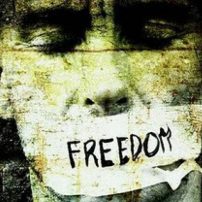
The prohibition of exit polls before elections do not interfere with the right to freedom of expression or the right to free elections
JUDGMENT
Dimitras and others v. Greece 07/09/2017 (no. 59573/09 and 65211/09)
SUMMARY
The legislative ban on public exit polls 15 days before parliamentary elections and a ban on the publication of exit poll results until the closure of the polls does not violate the right to freedom of expression of voters or the right to free elections. The ECHR did not find any violation of the ECHR.
PROVISION
Article 10
Article 3 of the First Additional Protocol
PRINCIPAL FACTS
The five applicants are Greek nationals who were all eligible to vote in the parliamentary elections of 4 October 2009.
A 2009 law had re-enacted a legislative provision of 2007, pursuant to which the publication and dissemination by the media of political polls on voting intentions were forbidden for the 15 days preceding parliamentary elections, European Parliament elections and referenda, until 7 p.m. on election day. In addition, throughout the same period radio and television broadcasters, magazines, newspapers, political parties and candidates were also forbidden from disseminating to the public any research on political trends, the public’s opinions and preferences with regard to the political parties, political questions or personalities, and other economic and social issues. The law provided for fines ranging from 30,000 to 300,000 euros (EUR) for failure to comply with those provisions.
THE DECISION OF THE COURT
Articles 10, 13 and 14 of the Convention and Article 3 of Protocol No. 1 to the Convention
The Court noted that all the persons concerned had been entitled to vote in the elections of 4 October 2009. It stressed that the legislation in question had not targeted the applicants personally and that they had been affected in precisely the same way as all voters in the elections of 4 October 2009, none of whom had had access to the opinion polls. They had not been barred from voting in the elections and had still been able, both in theory and in practice, to express their choice at the ballot box.
In order for the Court to find that the applicants had been directly affected by the law in question, it was not sufficient for legislation to exist affecting all Greek citizens who were eligible to vote. There had to be a direct link between the law in question and the obligations or effects it created for the persons concerned. The Court considered that the fact that the applicants had been unable to receive the results of opinion polls on voters’ intentions for fifteen days prior to the vote was not sufficient for it to find that they had been directly affected by the legislation.
THE DECISION OF THE COURT
The Court therefore found that the applicants could not claim to be victims of a violation of Article 10 of the Convention and Article 3 of Protocol No. 1 to the Convention. In view of that finding, it also rejected their complaints under Articles 13 and 14 of the Convention(echrcaselaw.com editing).


